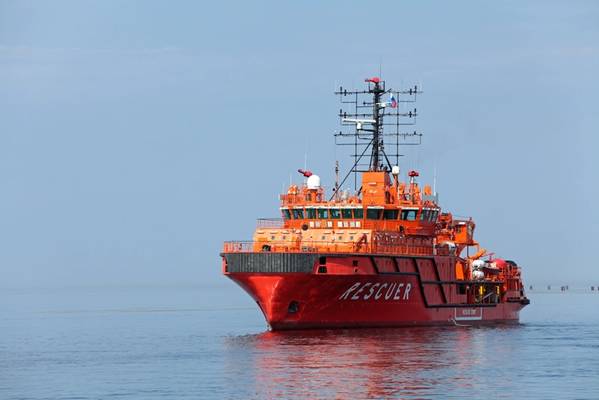
New manual provides vital recommendations for operational planning and response in health emergencies
The International Maritime Rescue Federation (IMRF), supported by Lloyd’s Register Foundation, has launched comprehensive guidance for anyone working in search and rescue, on how to ensure that SAR operations can continue safely in the face of challenges posed not only by COVID-19, but also by any future health emergencies.
The Pandemic Response Guidance will support SAR providers in improving their level of preparedness for any forthcoming pandemics and enhances initial materials produced by IMRF members in early 2020, in response to the emerging COVID-19 pandemic. The guidance has been peer reviewed by IMRF members around the world and is free to download from the IMRF website.
Theresa Crossley, CEO, IMRF said, “This guidance brings together all the knowledge and experience of our international membership. It’s been developed specifically for the challenges faced in the current global pandemic, but designed in such a way, that it can be used as a basis for operational planning and response in any future pandemics or major health emergencies. All around the world, our members report that their search and rescue services are needed as much as ever. Yet operating conditions are far more challenging and SAR teams face unprecedented new risks.
“We are very grateful to Lloyd’s Register Foundation for supporting the development of this important guidance and to all our members for sharing their experiences and learnings so candidly. This is a demonstration of what the IMRF is all about – sharing best practice and knowledge wherever possible, to save more lives in the world’s waters.”
Dr. Jan Przydatek, Director of Technologies, Lloyd’s Register Foundation said, “I am pleased that, with the support of the Lloyd’s Register Foundation, IMRF have been able to produce this guidance. I have no doubt that it will help SAR responders to better protect the health of both those rescued and SAR responders themselves.”
The Pandemic Response Guidance includes important background information on pandemics and recommends actions to help with mitigation and containment. It outlines the roles of different stakeholders and priorities for maritime SAR organizations, as well as suggesting options for the delivery of essential training and guidance for non-operational activities. Importantly, the manual also addresses the well-being of SAR personnel and measures for safeguarding the environment.
The Pandemic Response Guidance for Maritime Search and Rescue Organizations was launched in a webinar attended by IMRF members and SAR professionals from around the world on 25 February. Feedback has been overwhelmingly positive. Many have especially welcomed the content, as it is based on real experience and shared learnings from many different situations.
The Guidance recommends changes to policies and procedures which SAR organizations can implement to minimize the risk to their own personnel and others, while ensuring essential SAR services are maintained and delivered without interruption.
The IMRF will be organizing a Pandemic Response Guidance session at its forthcoming conference (International Mass Rescue Conference (G5) 17-19 October 2021, Sweden) and the document will be reviewed in three years to incorporate further learnings and any new developments.



